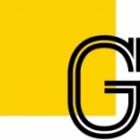The Working Group on Internet Governance (WGIG) report acknowledges that there is the lack of participation of women, indigenous peoples, civil society and small enterprises in the ICT decision making processes. However women's participation is critical to shape just and equal internet use and evolution.
In Friday's panel discussion “Gender and Internet Governance at WSIS” organized by Association for Progressive Communications Women's Networking Support Programme (APC WNSP), FEMNET Communications, and the WSIS Gender Caucus, internet governance has been acknowledged as one of the most important subjects for women who are following the global processes on governance and politics for a long time.
Among the panelists were WGIG's women members, who shared their views about gender aspects of internet governance.
Karen Banks, the WGIG member, reported about the gender imbalance in WGIG. As mentioned in her contribution, there were 40 members in total of which only 6 were women. Three of these women were civil society advocates. When she was asked by APC WNSP, her home organization, why the WGIG does not deal better with gender issues, she quickly pointed out that there are not enough women engaged in this theme. She said that even though the WGIG selecting process was inclusive, the aim to have 10 women members in the WGIG was not achieved. “As women and men we can encourage others to get involved in the so called technical issues as there are rules that govern that area,” said Banks.
Jacqueline Morris, another member of the WGIG, acknowledged she was happy with the respect that was given to women members and their input in the WGIG. “Whatever you say, builds a lot of respect,” said Morris. Since the majority of talks initiated by governments and members of different communication authorities focused on the technical issues, she was happy to see that the views and inputs of less technical oriented members were respected.
Avri Doria , also the WGIG member, mentioned gender was considered as a cross cutting issue. According to her the WGIG spent the most time discussing names and addresses which basically “took the air out of the room.” She observed that gender did not show up at all but the word women appeared three times in the WGIG discussions.
Doria, who is technologist, affirmed she has always experienced a small percentage of women in the more technical environment. In her presentation, she declared the Internet Corporation for Assigned Names and Numbers (ICANN) did better in achieving gender balance, because there were much more specific in their effort than WGIG. According to her it is particularly since only 13 WGIG nominations came from the civil society out of which most women members were selected.
Banks, who is involved with technology arena as well, thinks the numbers are improving in the civil society over the last 18 months. “We have seen women come up as there was bad women representation in the past constituencies,” said Banks. However many women do not participate because they feel it is a technical field. In her view there is need for translators to demystify the technical language of documents.
The participants suggested that the gender and ICT advocates need to promote women and to develop mechanisms how to educate more women in such issues as e-commerce or e-governance, so there is physical presence of women in these working places. To bring more women on the board, it is also important to address topics beyond the technical issues in the internet governance discussions. The participants also proposed to build a databank of women in ICTs, which will help to outline who is doing what in this area.
- 4029 views






Add new comment